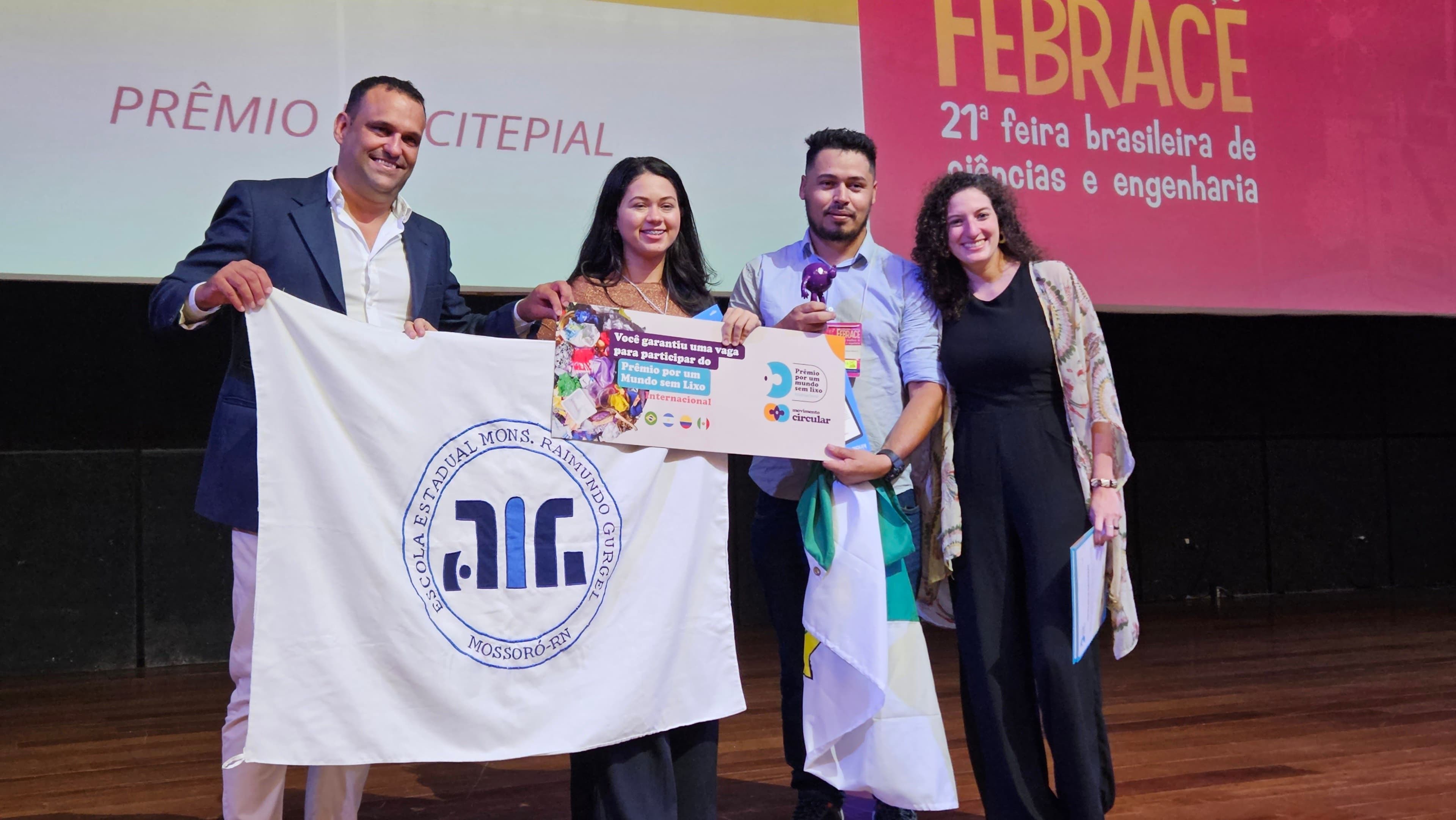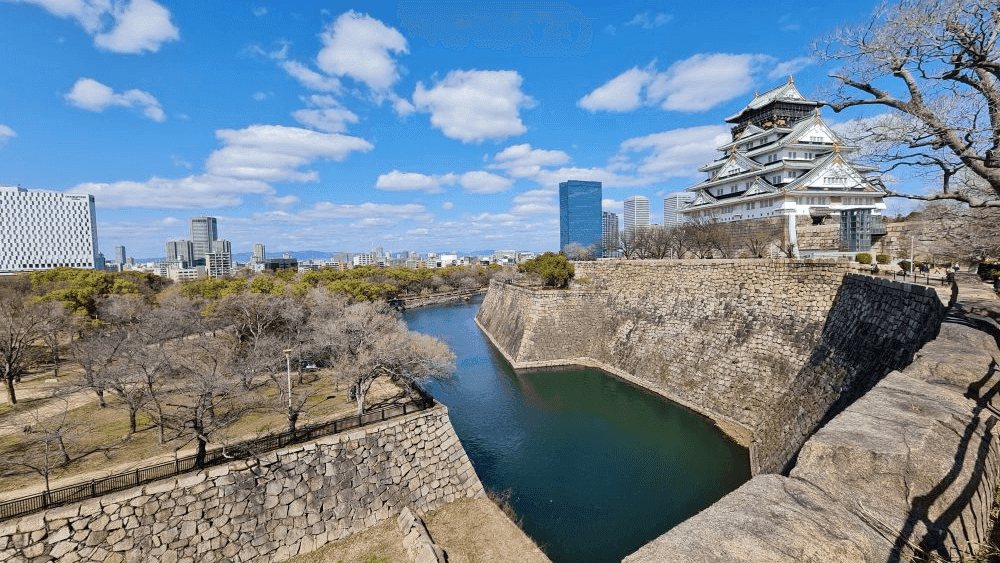
28/03/2023
Meet the winners of the 3rd Award for a World Without Waste
The Circular Movement announced the winners of the 3rd Award for a World Without Waste (AWWW) during the 21st Brazilian Science and Engineering Fair (Febrace), a program that promotes scientific culture in basic and technical education in Brazil. The partnership between the two initiatives is in the third consecutive year, recognizing innovative projects.
As in previous editions, among the fair's finalists, the three best scientific initiation projects aligned with the principles of the Circular Economy were selected. A relevant fact for 2023 is that 35.2% of the most highly regarded projects approach topics related to circularity.
That is, of the 250 finalists in the exhibition, more than one in every three projects had proposals related to the Circular Economy.
"This shows how the topic is already very present in the minds of young people in their projects for a more sustainable future. It is very gratifying to see that [the topic] is already on the agendas of schools throughout Brazil”, celebrated the coordinator of the Circular Movement, Vinicius Saraceni.
 Circular Movement examining board at the 21st Febrace
Circular Movement examining board at the 21st Febrace
The award ceremony took place last Friday (24) at Inova USP, in São Paulo, being the first AWWW held in a face-to-face format. "We were able to talk to students, teachers, and understand the contexts and challenges of each school. The proposals that arrive are getting more and more incredible”, Saraceni said.
Let's get to know the projects that conquered the podium of the 3rd AWWW!
Circular Economy Champions
1ST PLACE | Rainwater collection and storage system using low-cost materials. An alternative to combat drought in the Brazilian semi-arid region

The great champion of the 3rd Award for a World Without Waste was the student Vitória Sabrina, from the Public School Monsenhor Raimundo Gurgel, in Mossoró (RN). She developed a low-cost cistern to store rainwater during drought periods in the Brazilian semi-arid region.
Observing the challenge of low-income families in the region to face drought, Vitória began to think of a sustainable and economically viable solution to not only capture and store but also ensure the quality of water from the scarce rainfall in the area.
She gathered available and accessible materials in her surroundings to build the cistern.
With tarpaulin, long-life milk cartons, satellite dish scraps, and a circular hole dug in the ground, Vitória set up a device capable of storing an average of five liters of water for every millimeter of rain. How cool is that? With the conquest of the 1st place, Vitória's project won a spot to compete in the 1st International Award for a World Without Waste!
In addition to the certificate, she and her professor, Antônio Bezerra, each received a Kindle and will receive mentoring from the Circular Movement to improve their project.
2ND PLACE | Production of gloves made from bioplastic derived from sisal (agave sisalana) raw material

The group from the Public School Nossa Senhora das Graças, in Araci (BA), designed a biodegradable glove made from sisal fiber, a plant abundant in the Bahian semi-arid region.
With the idea of reducing the use of rubber gloves in the school's laboratory activities, they not only thought of reducing the impact of discarding this object on nature but also as an alternative for people allergic to latex.
According to the team, the biodegradable glove degrades in time to be able to return as fertilizer to the soil.
3RD PLACE | PC Board - Composite produced from the use of the mesocarp of coconut (cocos nucifera) and expanded polystyrene

Noticing the problem of improper disposal of green coconuts and expanded polystyrene (styrofoam) on the beaches of Acaraú (CE), the team from the Public School Maria Conceição de Araújo, located in the Aranaú district, decided to design a composite from these two waste materials.
With the fiber from the mesocarp of the coconut and a resin made through a chemical process from the styrofoam, the team managed to produce a board with similar applicability to MDF. The applicability test was the construction of a piece of furniture.
Honorable Mention
And the one who earned the honorable mention certificate was a student already known by the Circular Movement.
Victórya Leal, from the Federal Institute of Rio Grande do Sul (IFRS - Campus Osório), was the champion of the 2nd Award for a World Without Waste (2022) and at this year's Febrace presented the sequel to her project "Eco-Socius", this time with an educational game about the Circular Economy.

"Last year, I developed a mathematical model that explained why young people do not act sustainably. It was during the mentoring that I realized that understanding was not enough, I needed [to help] change these behaviors. That's how we came up with the idea of developing the game as an alternative to connect young people to the Circular Economy”, highlighted Victórya.
About the Award
The Award for a World Without Waste is an initiative to recognize the scientific initiation projects that are finalists at Febrace (an affiliated fair to the award) and that are in line with the principles of the Circular Economy. In 2023, the novelty is the creation of an international edition, with the winners from each participating partner country. As a kind of grand finale, the projects will be evaluated and the most innovative, complete, and replicable one will win the international award.
In the Award for a World Without Waste, projects with proposals that bring alternatives such as reducing waste and the use of natural resources, changes in consumption behavior, the use of alternative energy sources, and collaboration between different actors in society in the pursuit of regenerating the planet and its relationships, for example, are recognized.
The projects must also be relevant to the local reality, original, innovative, and feasible for implementation.
What is the circular economy?
The Circular Economy proposes a new look at our way of producing, consuming, and disposing, in order to optimize the planet's resources and generate less and less waste. In other words, an alternative model to the Linear Economy - to extract, produce, use and discard - which has proved to be increasingly unsustainable throughout history. In the Circular Economy, the goal is to keep materials in circulation longer by reusing them until nothing becomes waste! For this model to become a reality, we all have a role to play. It is a true collaborative circle, which feeds itself, and helps to regenerate the planet and our relations.
Learn about Circular Economy
If you are interested in learning more about this topic, visit Circular Academy , the first free Latin American course on circular economy aimed at general audiences. All of us, in partnership and collaboration, can make a difference in building a more circular planet.





